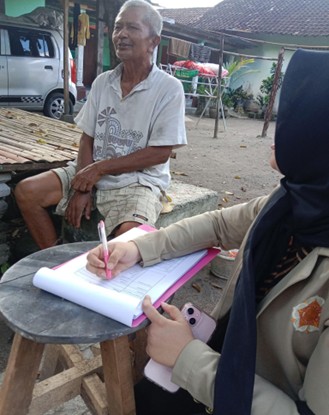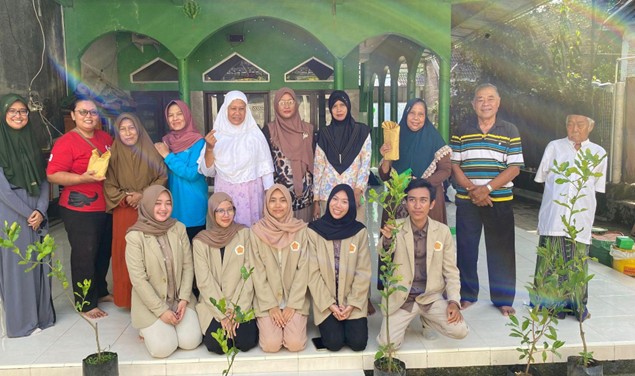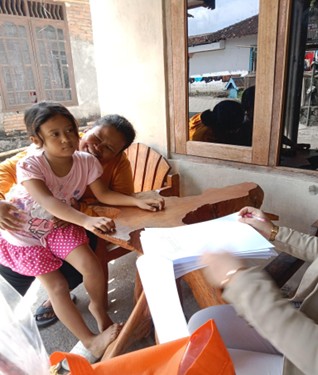The Community Service Team – Merdeka Belajar Kampus Merdeka (PkM-MBKM) from the Faculty of Biology, Universitas Gadjah Mada (UGM) 2025, supervised by Dr. Ardaning Nuriliani, S.Si., M.Kes., has successfully conducted a series of educational activities in Pajangan Hamlet, Wedomartani, Sleman. Under the theme “Improving Family Health through Cultivation and Processing of Herbal Plants”, the program aims to raise awareness and promote the use of herbal plants within the local community—supporting the achievement of Sustainable Development Goal (SDG) 3: Good Health and Well-being. The initiative involved five active undergraduate students of the Faculty of Biology, UGM grade 2022.
The activities began with the distribution of questionnaires and direct interviews with 50 residents to assess their perceptions and habits regarding herbal plant usage. The results revealed that most residents are familiar with and regularly use herbal plants in their daily lives. This provided a strong foundation for the team to continue with further educational outreach, particularly on the types and benefits of herbal plants—supporting SDG 4: Quality Education at the hamlet level. The enthusiasm of the community confirmed that this grassroots approach is effective in unlocking local potential for health improvement.
The next phase of the program included an educational seminar and herbal plant distribution, held at Masjid Jami’ Darussalam on Sunday, May 24, 2025. The session was presented by Chelsy Ammara Septiani and Nimas Ayu Pramesthi, covering the introduction to herbal plants, their benefits, and their role in preventing degenerative diseases. A lively and interactive Q&A session followed, with participants showing interest in innovative uses of herbal plants such as modern herbal beverages and aromatherapy candles. This response reflects a growing community awareness of responsible consumption and production, in line with SDG 12.
The event concluded with the distribution of herbal plants—including pandan, cat’s whiskers/Java tea, bilimbi, and bay leaf—to encourage continued cultivation and conservation of these plants within the community, thus contributing to SDG 15: Life on Land. The program will continue in the Odd Semester of the 2025/2026 academic year, focusing on both physical and mental health. It is hoped that the PkM-MBKM program will continue to bring tangible benefits to the residents of Pajangan Hamlet and serve as a model of collaborative service between academia and society through partnerships to achieve the goals (SDG 17).
Authors:
Ardaning Nuriliani, Chelsy Ammara Septiani, Syifa Aneira, Meinawa Amaliah, Nimas Ayu Pramesthi, Muhammad Fathin Setya Daffa





